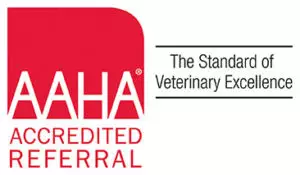How to Put Together a Cat and Dog First Aid Kit
If you want to be prepared for a pet emergency, then you’ll need a cat and dog first aid kit. Our veterinary specialists in Plainview, NY strongly recommend having a well-provisioned first aid kit that you can access at a moment’s notice. You just never know when you’ll need it!
You’re more than welcome to give us a call at (516) 501-1700 if you have questions. Also, if your pet does have an emergency, you can either call or drive over with your pet for immediate medical care. Our emergency team is available 24/7, so we’re always here when you need us.
Items to Include in Your Cat/Dog First Aid Kit
Like a human first aid kit, your pet first aid kit should remain fully stocked with all the essentials at all times, and be stored in an easy to reach spot.
What your kit needs:
This includes our number, (516) 501-1700, the numbers of emergency hospitals that might be closer to your present location, and the number for the Animal Poison Control Center, (888) 426-4435.
Have at least 2 copies of your pet’s up-to-date medical records, including vaccination history and any medications they’re currently taking.
Have at least one complete roll of gauze that you can use for wrapping wounds or muzzling your pet.
This can include clean towels, strips of clean cloth, and non-stick bandages for keeping wounds protected and bleeding under control.
Never use human bandages on your pet. Find the proper adhesive tape and use that to secure your pet’s bandages.
These substances are ideal for absorbing poisons. However, you need to contact your veterinarian first. Inducing vomiting in your pet can do more harm than good.
Hydrogen peroxide can also be used to induce vomiting, but again, PLEASE call our hospital for assistance before administering it to your pet.
Since your pet’s body temperature is naturally higher than yours, a standard digital thermometer will not be able to detect if they have a fever.
A large syringe sans needle or an eye dropper is useful for flushing out wounds and giving your pet liquid medication.
If your pet is having an emergency, they’ll need to be transported to the hospital. Moving them will be much easier if you have a leash on hand.
For Additional Support
The Pet Poison Helpline offers a wealth of information concerning poisons and toxins that affect our pets. You can contact them any time (but your call may come with a fee) to speak with a licensed professional about any poison concerns you have.


